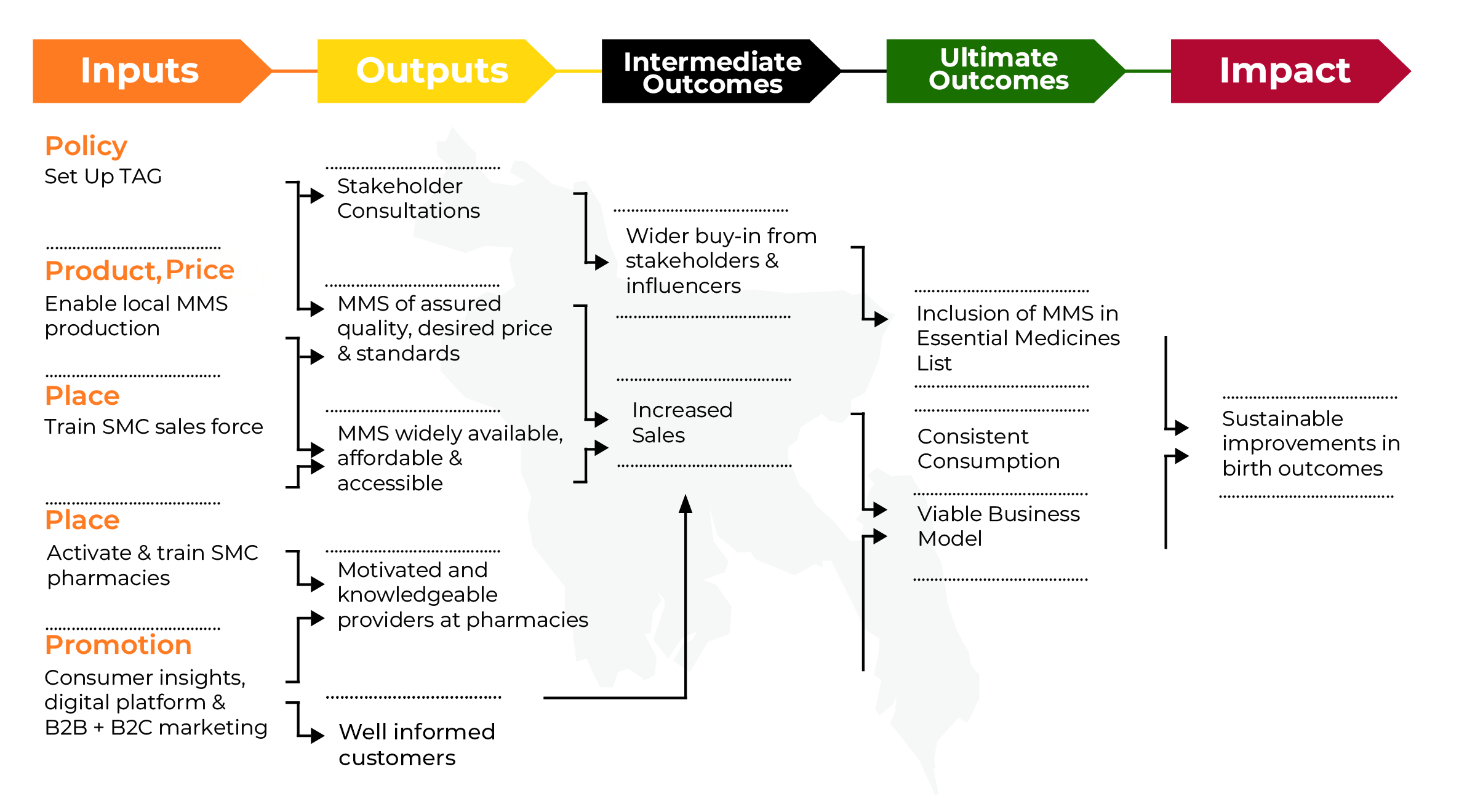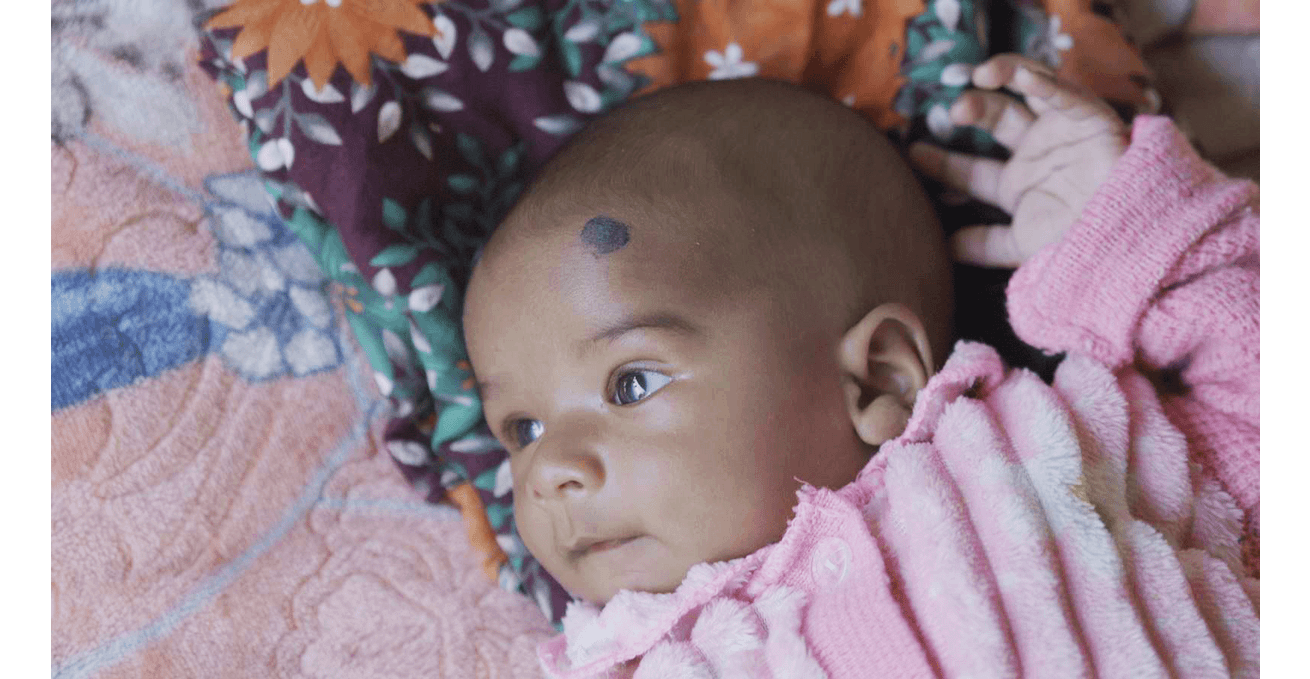Micronutrient deficiency is a major risk factor for poor pregnancy outcomes, which are the strongest predictor of malnutrition in childhood. Multiple Micronutrient Supplements (MMS) support adequate nutrient status in pregnancy and have been shown to reduce the prevalence of low birth weight, preterm birth, stillbirths, infants born small for gestational age (SGA), and 6-month infant mortality.
The project is funded by the Children’s Investment Fund Foundation (CIFF), aims to establish a sustainable social business model for Multiple Micronutrient Supplements for pregnant women through pharmacy networks in Bangladesh. By 2024, the project has successfully reached 900,000 pregnant women and is targeting an additional 1.5 million pregnant women by 2028. GAIN is implementing the initiative in collaboration with SMC—social marketing company operating through over 23,000 Star Network providers across the country — alongside technical partner by Sight and Life (SAL) and the Government of Bangladesh. This public-private partnership collaborates closely to ensure evidence-based design of the programme and supports improvements in antenatal care and MMS uptake more broadly.


GAIN's MMS project currently encompasses the following synergistic work areas:
i) Quality local Production and availability:
Ensuring quality local production and distribution through SMC’s extensive franchise pharmacy network and healthcare providers, to make Multiple Micronutrient Supplements (Brand name: ‘FullCare’) accessible to every pregnant woman in Bangladesh.
ii) Demand Generation:
Use evidence-based promotional techniques, such as scientific seminars to build capacity healthcare providers and pharmacists on MMS health benefits. This is complemented by in-store product activation, evidence-based sales pitches, and merchandising to raise consumer awareness and value for MMS use.
iii) Enabling Environment to shape policy around MMS:
Through a Technical Advisory Group (TAG) influence policy, set standards, ensure high-quality local MMS production, and advocate for its inclusion in Bangladesh’s Essential Medicines List and national guidelines. Additionally, the National Technical Committee (NTC) led by the National Nutrition Services (NNS) provides technical and strategic direction for the program and advocates for MMS inclusion in various policies and guidelines.
iv) Scaling up Market-based Model:
By the Year 2028, MMS 2.0 aims to increase the sales and demand for multiple micronutrient supplements (MMS), increase adherence, and establish a sustainable, market-based model driven by increasing sales margins and cost reduction. The initiative targets annual sales exceeding 40 million tablets, aiming to reach between 300,000 and 500,000 pregnant women—representing 10% to 18% of pregnancies in Bangladesh. The project will cover 41% of the total pharmacy network, including the SMC Star Network, and will implement community-based antenatal care (ANC) services across 137 Upazilas (sub-districts), reaching over 200,000 pregnant women. Through these efforts, the cost per woman for ANC services and MMS is expected to reduce from USD 13.07 to USD 4.03 by 2028. Furthermore, MMS is expected to be fully integrated into national policies, including the National Plan of Action on Nutrition (NPAN3), the 2nd National Nutrition Program (NNP) and the Essential Medicines List (EML), ensuring long-term impact and sustainability.
